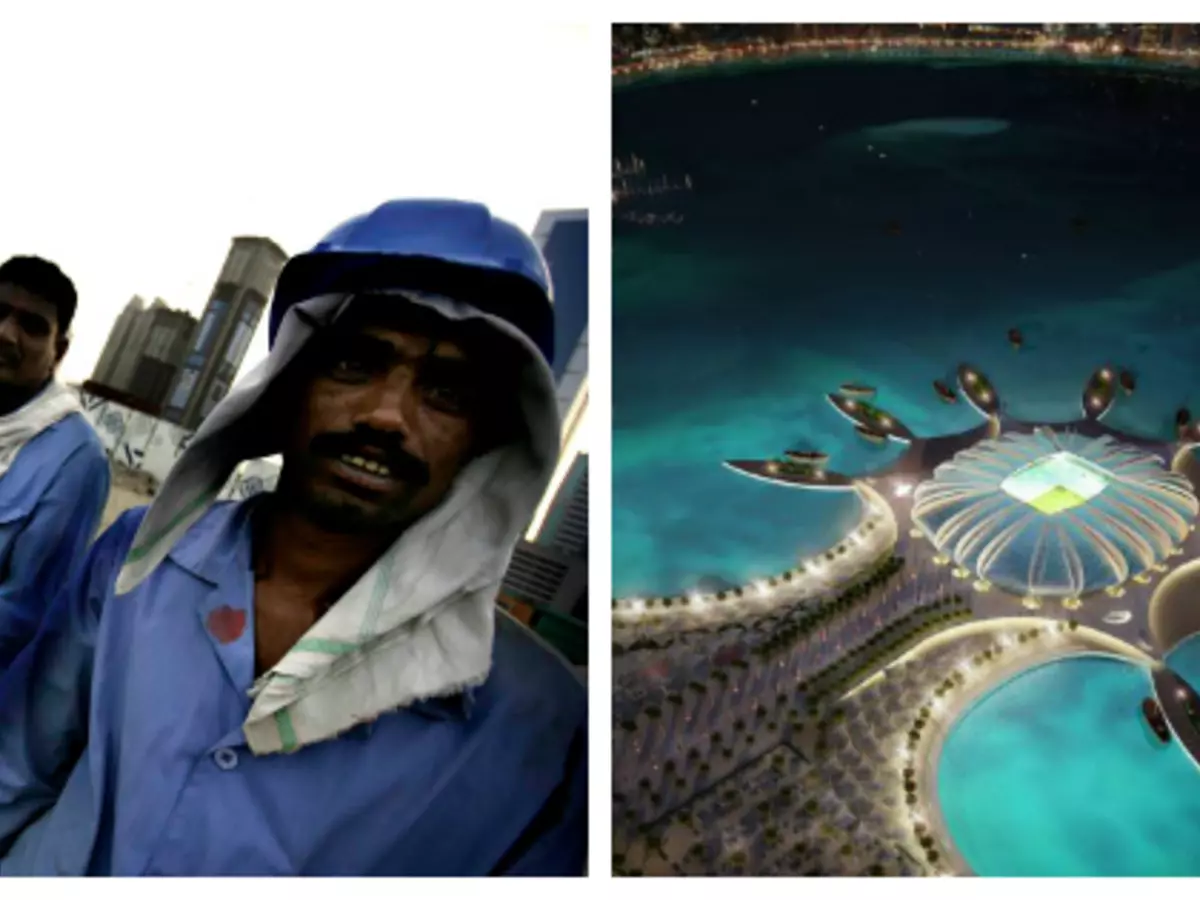1,000 Indian Workers Dead. The Grim Reality Of Qatar's FIFA World Cup Dream
The 2022 Qatar FIFA World Cup will kill more Indians than the numbers of players it will host. Migrant workers live in overcrowded accommodation with no air conditioning and are exposed to overflowing sewage and uncovered septic tanks. Many are dumped and forgotten in squalid accommodations by companies who promised them a better life.

The 2022 Qatar FIFA World Cup will kill more Indians than the numbers of players it will host. This is what Sharan Burrow, general secretary of the International Trade Union Confederation said last year, when news of Qatari human rights violations made headlines. A thousand Indians had already died, and a year later, we¡¯ve only rescued Indians from the Gulf country when bombs fell, but ignored the darker, hidden world of Indian migrants in these nations.
Working in 50 degree heat, 12 hours a day, with no food.

In 2013, a Doha hospital reported that over a 1,000 workers were admitted to the trauma unit because of falling from heights, and a ¡°significant¡± number of them died. Working 12 hours a day in 50 degree heat, without enough water - that¡¯ll knock anyone out.
But their ordeal had begun much before that ¨C many reported having lower salaries (which were rarely, or never paid), having their passports taken away, and working seven days a week. And as the 2022 deadline for the World Cup approaches, it is getting worse.
Being forced to live like animals

Migrant workers live in overcrowded accommodation with no air conditioning (a necessity in the scorching heat of the Middle East), and are exposed to overflowing sewage and uncovered septic tanks. Many are dumped and forgotten in squalid accommodations by companies who promised them a better life.
Here¡¯s some excerpts from an International Trade Union Confederation Case study

¡°For three months, I and 15 others who arrived together were forced to sleep on the floor on a thin mattresses. We complained to the Qatar National Human Rights Committee about this and were moved into another accommodation. But even now eight people share one bedroom, sixteen people share a bathroom and thirty-five people share a kitchen¡¡±
¡°The kitchen is not hygienic, the bedrooms are crowded, the drainage in the showers is clogged up and most importantly there is no safety equipment or emergency exits in the building, which puts our lives under serious risk."

¡°When I take one day off from work, two days pay is deducted from my salary. This is also the case when I am sick. One of my concerns is safety at work. My employer does not provide any boots or other safety equipment, not even a uniform. ¡°
The Indian embassy reported that 237 Indians died in Qatar in 2012, and 191 in 2013 - many from "unnatural" heart failure. The year before, 169 Nepalese had died here. If they don¡¯t die, many will kill themselves, due to mounting debts and not being able to return home.
There¡¯s no escape

afp
Passports and other visa documentation is often taken away on arrival, and there¡¯s no written proof of employment terms either. This is the Kafala system, which forces migrant workers to depend on their sponsors for pretty much everything. With their passport and visa, these sponsors conveniently terminate the possibility of workers escaping.
They¡¯re being starved

Often, these workers aren't given enough food or any food for that matter, leaving them starving because they haven¡¯t been paid salaries.
And tortured

What does the Indian government think?
Despite the high death count of Indian labourers in Qatar, our embassy in Qatar says this it is ¡°quite normal¡±, according to Amnesty International.

Nikhil Eapen, Spokesperson, Amnesty International India, had written last year on their website about the government¡¯s aloof stance: ¡°Instead of simply saying that such deaths are normal, the Indian government should provide clearer and more transparent information because at this point, we are unable to say how these deaths took place - whether on construction sites, in labour camps, road accidents or as a result of natural causes.¡±
Could it be
But we think there might be an ulterior motive. In December last year, Prince of Qatar, Sheikh Hamad Bin Khalifa Al-Thani had spoken about committing 1 lakh crore Rupees to Modi¡¯s goal of ¡®smart cities¡¯. With such a massive investment, maybe the government chose to sideline what may seem like a handful of Indians, for the bigger picture. At least that¡¯s what it looks like.
Qatar's World Cup | ESPN E:60 from Bluefoot Entertainment, Inc. on Vimeo.
Inputs from Kounteya Sinha, TNN | Images via Deadspin. International Trade Union Confederation, Amnesty International, Hazards.org, and AFP
